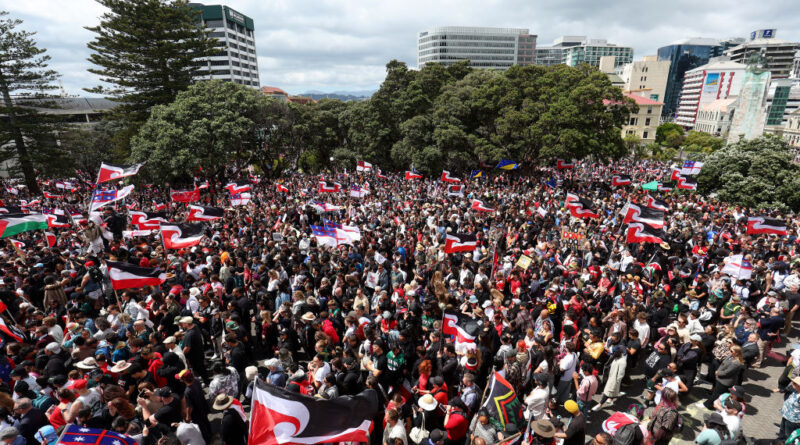40,000 March to Parliament in Protest Against Bill Restricting Maori Rights
The Treaty Principles Bill aims to eliminate perceived ‘race-based’ laws and rights that have established Maori-specific institutions and positions.
The gathering at New Zealand Parliament in Wellington, after a nine-day march from Auckland, was peaceful with about 35,000 to 40,000 participants, in contrast to previous pandemic-related protests. Despite earlier statements from leaders like Jacinda Ardern and Christopher Luxon refusing to meet with protesters, the atmosphere remained calm.
However, Parliament speaker Trevor Mallard took measures like turning on sprinklers and playing loud music to disperse the crowd. Eventually, some protesters resorted to violence, resulting in disruptions and destruction.
While Prime Minister Christopher Luxon did not meet with the protesters, a delegation from the National Party and Labour Opposition Leader Chris Hipkins engaged with the crowd. The protesters made speeches, sang songs, and later headed to Waitangi Park for a festival.
This protest marks one of the largest outside Parliament, surpassing previous demonstrations. The focus of the march was the ACT Party’s Treaty Principles Bill aiming to ensure equality under the law for all New Zealanders.
Opponents argue that special measures are necessary for Maori until equality is achieved, given their disadvantaged position in various aspects of society.
The Bill has sparked significant controversy, with over 200,000 people signing a petition against it and protests intensifying outside Parliament. The public debate and actions surrounding the Bill have drawn attention to the complex issues surrounding indigenous rights and the Treaty of Waitangi.



